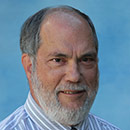Page 376 • (12,451 results in 0.043 seconds)
-
3. A liberating foundation in the liberal artsThe roots of the liberal arts (artes liberales) extend back into classical antiquity. Roman education, for example, progressed from basic literacy (the province of the litterator), to secondary school under the grammaticus, and finally to rhetorical education with the rhetor. Rhetoric allowed for a career in public office or the law courts. The achievements of Greco-Roman culture were eclipsed in the West for some centuries after the fall of Rome
-
By Maria Flores '20Division of Social Sciences A yearlong sabbatical in 2017-18 provided Dr. Brenda Llewellyn Ihssen, Dr. Michael Schleeter, and Dr. Seth Dowland with opportunities to rethink their courses and pursue scholarly interests. For Dr. Dowland and Dr. Schleeter, sabbatical was a time to step away from teaching and service obligations so that they could focus on scholarship relevant to their teaching. For Dr. Llewellyn Ihssen, sabbatical provided an opportunity to teach and serve in a
-

Thomas Ackerman Director of the Joint Institute for the Study of the Atmosphere and Ocean (JISAO) and Professor of Atmospheric Sciences at the University of Washington Office Location:null Website: http://jisao.washington.edu/about-jisao/director Professional Biography Education Ph.D., Atmospheric Science, University of Washington - Seattle, WA, 1976 M.S., Physics, University of Washington - Seattle, WA, 1971 B.A., Physics, Calvin College - Grand Rapids, MI, 1970 Areas of Emphasis or Expertise
Area of Emphasis/Expertise -
Cynthia Briggs KittredgeProfessor of New Testament Dean and President of the Episcopal Seminary of the Southwest in Austin, Texas Co-editor of the Fortress Commentary on the Bible and Conversations with Scripture: The Gospel of John Gordon LathropProfessor of Liturgy Emeritus Lutheran Theological Seminary at Philadelphia Author of The Four Gospels on Sunday: The New Testament and the Reform of Christian Worship and The Pastor: A Spirituality Barbara RossingProfessor of New Testament Lutheran
-
Long Range PlanningPacific Lutheran University has identified three meta-priorities that infuse all of the work at the university: Lutheran Higher Education, Market Position, and Diversity, Justice and Sustainability (DJS). Advance Academic Excellence 201320142020 (GOAL) Faculty Quality Excellence in Teaching, Scholarship, ServiceMetrics created Incoming Student Quality (measured under SEMAC priority) Program Quality Major/Minor Programs % of disciplines w/honor societies % of departments that
-
Executive BoardThe Executive Board consists of the following: President, Vice President, Secretary, Treasurer, Outreach Group Coordinator, Activities Group Coordinator, Services Group Coordinator, and the immediate Past President. The SCC Director, the Chair of the Scandinavian Studies Program, the Curator of the Scandinavian Immigrant Experience Collection, and a representative from PLU’s Development Office serve as ex officio members. The Executive Board conducts the business of the Cultural
-
Latino Studies Learning Objectives1) Through the analysis of a wide array of Latino cultural productions (literature, film, music, visual arts, socio-political studies), students will be introduced to Latino Studies as a field, its history from the Civil Rights era to the present, its spaces of engagement (community, academy, political, cultural), and main theoretical contributions. 2) Students will complicate their understanding of US history, geography, and dominant narratives about Latinos
-
Powell-Heller Conference for Holocaust Education“Jewish Life in Poland: Before, During and After the Holocaust”Free and Open to the Public - Registration RequiredAll Times Posted are Pacific Standard (PST)Wednesday, October 26thThursday, October 27thFriday, October 28thWednesday, October 26th7:00 p.m. – Anderson University Center, Regency RoomOpening of ConferenceScreening of Three Minutes: A Lengthening, a film based on Glenn Kurtz’s acclaimed book Three Minutes in Poland: Discovering a Lost
-
Curricular Conceptual FrameworkThe School of Nursing’s conceptual frameworks, undergraduate and graduate, are guided by the mission of PLU and the mission of the School of Nursing. PLU seeks to educate students for lives of thoughtful inquiry, service, leadership and care–for other people, for their communities, and the earth. The School of Nursing faculty members fully embrace these concepts and further hold beliefs about nursing, persons, environment, and health which direct the development
-
Start at Seattle Central College and Finish Strong at PLUEach year, Seattle Central College students transfer to Pacific Lutheran University to complete their Bachelor’s degree, with over 40 academic programs from which to choose. Now is the time to apply. Finish strong at Pacific Lutheran University. Why attend PLU? Washington’s #1 Best Small College to Help Graduates Find Jobs (Zippia) 99% of PLU students receive financial aid More than 40 academic programs Class size average of 19 Generous
Do you have any feedback for us? If so, feel free to use our Feedback Form.


